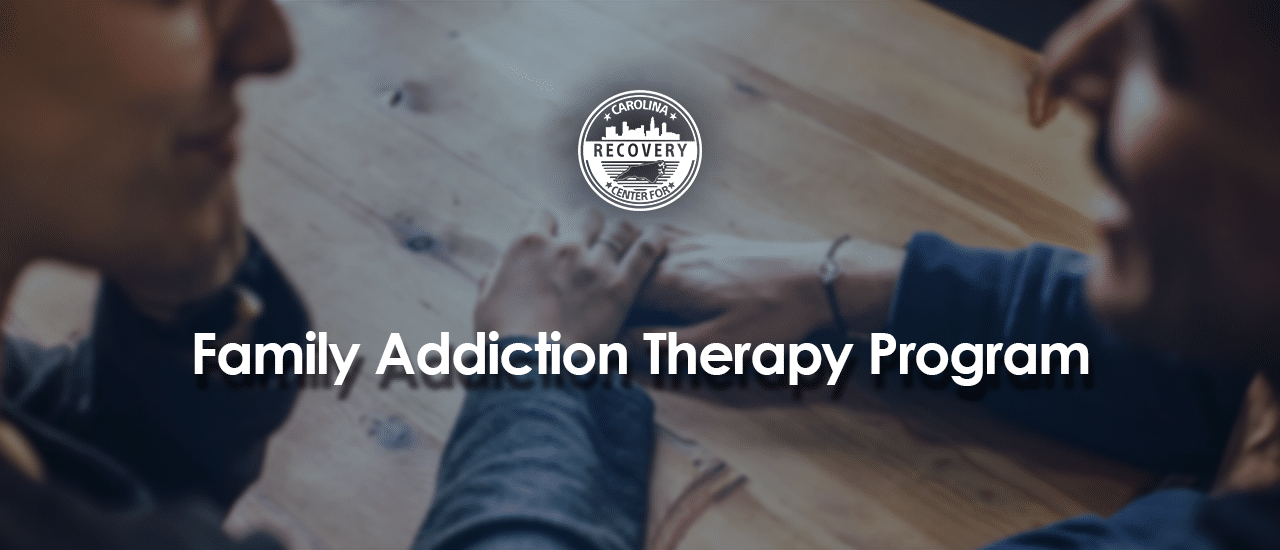


Family therapy is used in a variety of different settings, including substance abuse treatment, mental health counseling, and marriage counseling. When families implement the skills they learn in therapy into their own homes, this approach is effective for both adolescents and adults. Family addiction therapy, specifically, is a group therapy approach that aims to strengthen a family’s communication skills and resources so that the addict can live without drugs and the family can adequately support him or her.
In addition to substance abuse, therapists may encourage family members to address additional issues, including:
Addiction is a complex and personal issue that produces far-reaching effects. Unfortunately, for every person battling drug or alcohol addiction, there are family members who are suffering as well. As a result, family addiction therapy is a critical aspect of addiction recovery. In fact, studies show that treatment programs that incorporate family members in the treatment process tend to have better outcomes in the long run.[1]
When family members participate in therapy together, they have the opportunity to voice their feelings and concerns regarding their loved one’s addiction. In many cases, family addiction therapy begins after the afflicted individual seeks treatment for substance abuse. During treatment, this individual is becoming more and more aware of why they abuse substances and how their addiction is affecting their loved ones. As a result, there is no better time to participate in therapy as a family so that everyone gets a chance to heal.
Family members who are faced with addiction may begin developing unhealthy roles in order to cope. For example, a mother or spouse may have begun displaying codependent behaviors or a child may begin acting out in humorous, yet dangerous actions. These are just two examples of unhealthy coping mechanisms that people develop to deal with the effects of addiction in the home.
One primary goal of family addiction therapy is to teach family members and the addict about how substance abuse affects one another. In addition, therapists will arm members of the family with coping skills and community resources that will help improve their relationships.
In the end, addiction touches everyone in families who are affected by it and everyone deserves a chance to heal. Family therapy provides a safe place for families to constructively voice their concerns, set their boundaries, and learn how to function better as a unit.
Most addiction treatment programs in North Carolina use the family systems model to address families affected by drug or alcohol addiction. This system is based on the belief that the family functions as a distinct system and that the behaviors of each individual affect how the system functions. In instances of addiction, the addicted individual is impaired on a regular basis which contributes to dysfunction in the home.[2]
Within the family systems model, there are various types of therapy approaches that may be used during family addiction therapy. These include:
The family systems model is used to treat not only addiction but many mental and behavioral health conditions as well. Family addiction therapy sessions may be held on an inpatient or outpatient basis depending on the readiness of the patient and the willingness of family members. These therapies may be integrated with cognitive-behavioral therapy (CBT), dialectical behavior therapy (DBT), or trauma-informed care depending on the therapist and the family’s unique needs.
Other types of therapy that may be used include:[3]
When therapy sessions begin, the therapist will help the family set goals that they want to accomplish. Then, the therapist will create a customized therapy plan that will help the group accomplish these goals. Sessions typically last about an hour and may occur on a weekly basis for as long as the family requires.
Family involvement in addiction treatment is known to help decrease harmful behaviors, improve social functioning, reduce substance abuse, reduce mortality rates after rehab, and help improve a wide variety of psychosocial problems within the family.
In addition to improving patient outcomes, family addiction therapy provides many benefits to the addicted individual and the family as a whole. Some benefits families can gain from therapy include:
Healing from addiction isn’t easy, but it is made much easier with the involvement and support of family members. Moreover, it doesn’t just benefit the addicted individual, but it benefits the well-being of each individual in the family.
At Carolina Center for Recovery, we know that a patient’s success in recovery increases when their family is involved. As a family-owned and operated treatment facility in North Carolina, we understand the sleepless nights, the fiery arguments, and the general fear and frustration that family members of addicts experience on a daily basis. That’s why our mission is to provide a safe and supportive environment for families and their loved ones to heal from the devastating effects of addiction.
In addition to our family addiction therapy services, our family support program provides families with bi-weekly meetings where they can learn to understand addiction, set healthy boundaries, and cope with their difficulties. Whether you’re seeking help for yourself, a loved one, or just need someone to listen – our team is here for you. Give us a call today to see how we can help.
References: